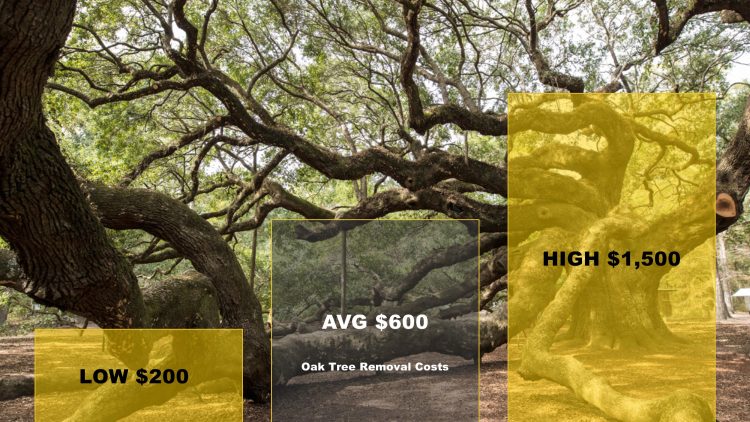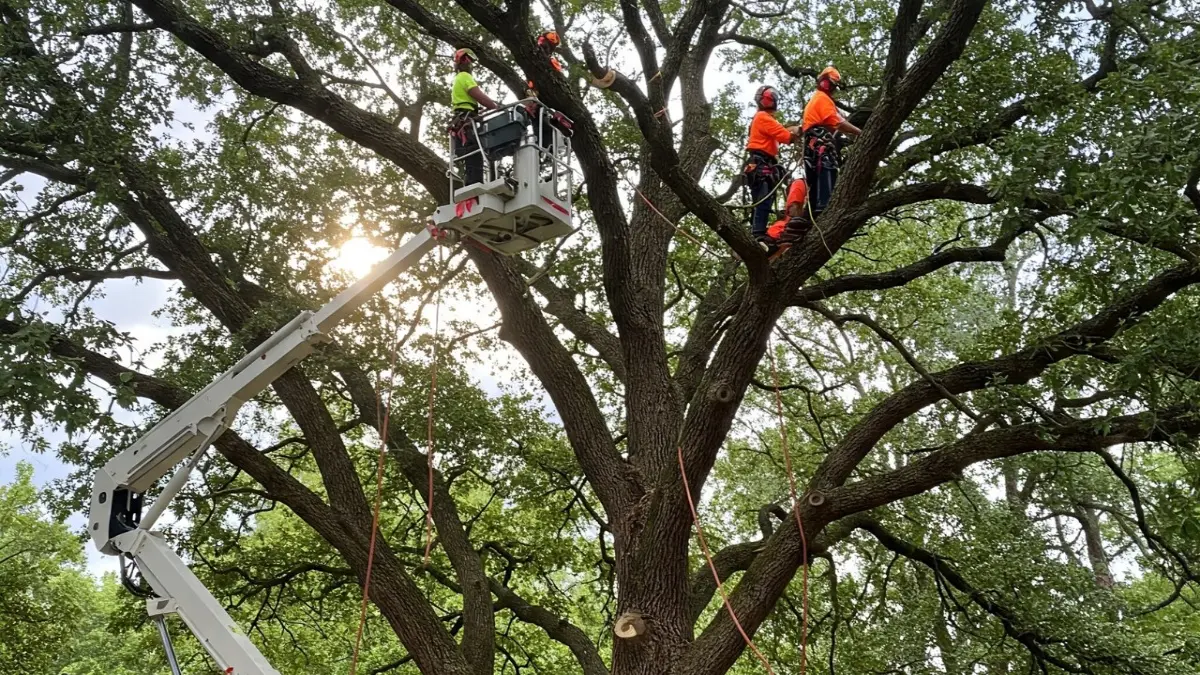Featured
Table of Contents
- – How To Avoid Overpaying For An Stump Removal I...
- – Permit Costs For Stump Grinding In Country Clu...
- – Timeline For An Tree Service Installation In ...
- – Country Club Hills, IL Tree Clearing Ratings
- – Military Discounts On Tree Trimming In Countr...
- – Country Club Hills, IL Tree Cutting Package P...
- – Top-Rated Tree Service In Country Club Hills,...
- – Country Club Hills, IL Tree Clearing Reviews...
- – Check Local Tree Cutting Prices In Country C...
- – Extra Tree Cutting Costs In Country Club Hil...
- – Country Club Hills, IL Tree Removal: Worth T...
- – Price Expectations For An Tree Service In Co...
- – Luxury Arborist Costs In Country Club Hills,...
- – Country Club Hills, IL Tree Clearing Cost Gu...
- – Should You Hire An Tree Cutting In Country C...

The subsections below supply more detailed info about rates, consisting of a typical range for each. TypeAverage Elimination CostPineConiferPalmMagnoliaArborvitaeAshCedarSweet GumEucalyptusSycamoreCypressOakMaplePoplar You can anticipate to pay in between to get rid of a pine, depending on its size. Removing a pine is among the more economical tasks unless it is one that has actually been around for years and is rather big.
How To Avoid Overpaying For An Stump Removal In Country Club Hills, IL
Pines likewise have a tap root that grows deep into the soil, which can show to be more difficult to eliminate. The procedure itself involves an expert cutting the tree, clearing the base, cutting the surface area roots, getting rid of the stump, and finally treating the soil. Without a professional hand, you run the risk of leaving pine seedlings behind, which will fall from the roots of distressed pines.
Permit Costs For Stump Grinding In Country Club Hills, IL
The U.S. national average for conifer elimination is approximately to have the conifer reduced, carried away, and the stump ground or eliminated totally. Conifers are generally much easier to get rid of, and despite the fact that they can grow rather high, they do not cost a fortune to get rid of. Conifers include pine, spruce, fir, and juniper trees.
Timeline For An Tree Service Installation In Country Club Hills, IL
While conifers are beautiful, they eliminate native plants and specific kinds of grass. This is since they need a lot of water and nutrients to make it through, so they leach it off surrounding plants. They also have an expansive network of roots, which can affect your home's structure. The average price of palm removal depends upon the height as much as the type, ranging from.
Country Club Hills, IL Tree Clearing Ratings
That is why it is very important to know which type you are removing. While you do not need an herbicide to eliminate a palm tree, there are some actions your elimination professional will have to take to guarantee the task is done properly. There are 2 ways they can get rid of them: by slicing them down or digging them up.
Military Discounts On Tree Trimming In Country Club Hills, IL
This is since little animals like rats and scorpions often live in them. Plus, numerous types will have spikes, too. From there, they eliminate the actual tree and after that the stump. Expect to pay between to eliminate this kind of tree, depending on the precise size and information of the job.
Country Club Hills, IL Tree Cutting Package Prices
There are 3 types: green, white, and black ash. White ash is known for its many colors. With its gray-tinged bark, its leaves are green or purple in the spring and golden yellow or purplish-red in the fall. They delight in moderate environments and great deals of sun. The green ash is named such due to its green or yellow foliage.
Top-Rated Tree Service In Country Club Hills, IL: Pricing

The bark is softer, and it blooms later in the year - tree trimming. Due to the variation in height, the removal cost difference is large from. A coniferous, evergreen tree, the cedar is a sturdy types. Real cedars take pleasure in greater altitudes, generally in the Mountain ranges and the Mediterranean. A true cedar can grow as high as 160 feet in height and is often planted in the United States as a landscape alternative.
Country Club Hills, IL Tree Clearing Reviews: What Locals Say
The development of incorrect cedars differs from 50 feet up to 230 feet high. With star-shaped leaves and stunning fall colors, the sweet gum is considered a medium to large tree.
Check Local Tree Cutting Prices In Country Club Hills, IL
Typically, it costs between to remove a eucalyptus. Eucalyptus are not common everywhere, but they are quite large compared to others, which is why even the smaller sized ones are so pricey to remove.
Extra Tree Cutting Costs In Country Club Hills, IL: What To Watch For
There are a handful of methods to do this, consisting of burning, pulling, grinding, or killing them with herbicide. Anticipate to pay between to remove sycamores, based on the height, trunk size, and amount of work involved. Sycamores are one of the largest hardwood trees, generally varying from 60 to 100 feet high and as broad as 15 feet.
Country Club Hills, IL Tree Removal: Worth The Cost
The first two steps will expose the insides of the tree and cut off the circulation of nutrients up the trunk. From there, an expert uses herbicide to kill the tree and cuts down the trunk.
Price Expectations For An Tree Service In Country Club Hills, IL
There are various kinds of Cypress trees, however the most widespread are the Leyland, Arizona, Bald, and Italian. The Bald Cypress grows in swampy or really damp locations while the others take pleasure in a dry, warm, or hot climate (arborist). They can grow as high as 80 to 100 feet high
Luxury Arborist Costs In Country Club Hills, IL

Prone to illness, the Cypress is among the most valued woods for furnishings. The typical oak grows to around 60 feet, and depending upon the intricacy of the removal, it costs an average of to eliminate. The precise size of your oak and the effort needed to fell it affect what you will actually pay for elimination together with any additional services like stump grinding.
Country Club Hills, IL Tree Clearing Cost Guide: Essential Info
Access to the trees and the roots will also impact the general cost. Maples can quickly mature to 100 feet or more and typically cost between to eliminate from your residential or commercial property. The last rate depends upon the real height and intricacy of the job. Maples are generally among the more pricey trees to get rid of because of their size and the work associated with the elimination.
Should You Hire An Tree Cutting In Country Club Hills, IL
Growing as high as 90 to 115 feet, these enormous lumbers are generally discovered in North America and consist of the aspen, cottonwood, and balsam trees. The process to eliminate trees involves all the cutting and cutting of the branches and trunk, bringing it down to a stump.
Table of Contents
- – How To Avoid Overpaying For An Stump Removal I...
- – Permit Costs For Stump Grinding In Country Clu...
- – Timeline For An Tree Service Installation In ...
- – Country Club Hills, IL Tree Clearing Ratings
- – Military Discounts On Tree Trimming In Countr...
- – Country Club Hills, IL Tree Cutting Package P...
- – Top-Rated Tree Service In Country Club Hills,...
- – Country Club Hills, IL Tree Clearing Reviews...
- – Check Local Tree Cutting Prices In Country C...
- – Extra Tree Cutting Costs In Country Club Hil...
- – Country Club Hills, IL Tree Removal: Worth T...
- – Price Expectations For An Tree Service In Co...
- – Luxury Arborist Costs In Country Club Hills,...
- – Country Club Hills, IL Tree Clearing Cost Gu...
- – Should You Hire An Tree Cutting In Country C...
Latest Posts
Sumner, WA Stump Grinding Replacement Costs
Somerville, NJ Arborist Warranties: What's Covered
Emergency Arborist Costs In Sault Ste. Marie, MI
More
Latest Posts
Sumner, WA Stump Grinding Replacement Costs
Somerville, NJ Arborist Warranties: What's Covered
Emergency Arborist Costs In Sault Ste. Marie, MI